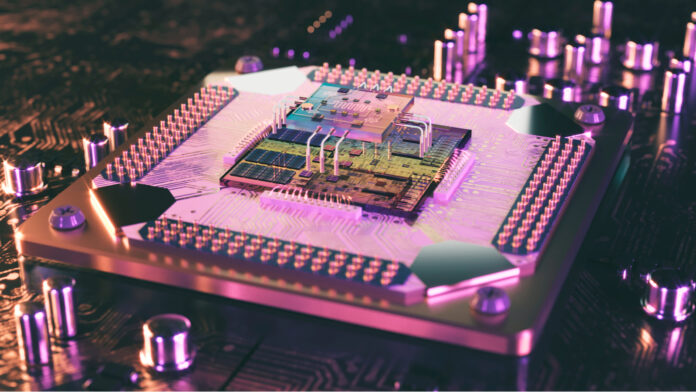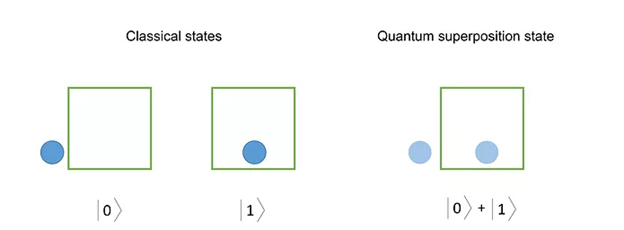Editor’s note: “The Best Industry for Long-Term Investors?” was previously published in May 2023. It has since been updated to include the most relevant information available.
What do you think happens in Area 51?
The government assures us it’s just for military testing and the like. But with all the unidentified anomalous phenomena (UAP) seen in American skies these days, many folks across the internet question whether there’s more happening in Area 51 than the government would have you believe.
No, I’m not saying aliens are real. And like you, I don’t know what happens in Area 51.
But what I will say is that something much more important and revolutionary is happening in an entirely different, yet equally secretive, area. Something that could change the world as we know it… something that I call “Area 52.”
Area 52 is a 52-mile test loop that runs 26 miles in two directions out of the southwest Chicago suburbs. It connects the Argonne National Laboratory to the Boughton Road Toll Plaza. And it’s where the U.S. government is testing a groundbreaking new technology that could have a more profound impact on the world than any technology in our lifetimes.
In fact, some experts say this tech could be more important to humankind than the discovery of fire.
And it’s not artificial intelligence.
Instead, it is quantum computing.
What Is Quantum Computing?
I’ll start by saying that the underlying physics of this breakthrough — quantum mechanics — is highly complex. It would likely require over 500 pages to fully understand.
But, alas, here’s my best job at making a Cliff’s Notes version in 500 words instead.
For centuries, scientists have developed, tested, and validated the laws of the physical world, known as classical mechanics. These scientifically explain how and why things work, where they come from, so on and so forth.
But in 1897, J.J. Thomson discovered the electron. And he unveiled a new, subatomic world of super-small things that didn’t obey the laws of classical mechanics… at all. Instead, they obeyed their own set of rules, which have since become known as quantum mechanics.
The rules of quantum mechanics differ from that of classical mechanics in two very weird, almost-magical ways.
First, in classical mechanics, objects are in one place at one time. You are either at the store or at home, not both.
But in quantum mechanics, subatomic particles can theoretically exist in multiple places at once before they’re observed. A single subatomic particle can exist in point A and point B at the same time until we observe it. And at that point, it only exists at either point A or point B.
So, the true “location” of a subatomic particle is some combination of all its possible positions.
This is called quantum superposition.
Second, in classical mechanics, objects can only “work” with things that are also “real.” You can’t use an imaginary friend to help move the couch. You need a real friend instead.
Entanglement
But in quantum mechanics, all of those probabilistic states of subatomic particles are not independent. They’re entangled. That is, if we know something about the probabilistic positioning of one subatomic particle, then we know something about the probabilistic positioning of another subatomic particle – meaning that these already super-complex particles can actually work together to create a super-complex ecosystem.
This is called quantum entanglement.
So in short, subatomic particles can theoretically have multiple probabilistic states at once, and all those probabilistic states can work together – again, all at once – to accomplish their task.
And that, in a nutshell, is the scientific breakthrough that stumped Einstein back in the early 1900s.
It goes against everything classical mechanics had taught us about the world. It goes against common sense. But it’s true. It’s real. And now, for the first time ever, we are learning how to harness this unique phenomenon to change everything about everything…
This is why the U.S. government is pushing forward on developing a National Quantum Internet in southwest Chicago. It understands that this tech could be more revolutionary than the discovery of fire or the invention of the wheel.
I couldn’t agree more.
Mark my words. Everything will change over the next few years because of quantum mechanics – and some investors will make a lot of money.
Quantum Computing Will Change the World
The study of quantum theory has led to huge advancements over the past century. That’s especially true over the past decade. Scientists at leading tech companies have started to figure out how to harness the power of quantum mechanics to make a new generation of super quantum computers. And they’re infinitely faster and more powerful than even today’s fastest supercomputers.
And in fact, Haim Israel, managing director of research at Bank of America, believes that: “By the end of this decade, the amount of calculations that we can make [on a quantum computer] will be more than the atoms in the visible universe.”
Again, the physics behind quantum computers is highly complex, but here’s my shortened version…
Today’s computers are built on top of the laws of classical mechanics. That is, they store information on what are called bits, which can store data binarily as either “1” or “0.”
But what if you could turn those classical bits into quantum bits – qubits – to leverage superpositioning to be both “1” and “0” stores at once?
Further, what if you could leverage entanglement and have all multi-state qubits work together to solve computationally taxing problems?
Theoretically, you’d create a machine with so much computational power that it would make today’s most advanced supercomputers seem ancient.
That’s exactly what’s happening today.
The Possibilities Behind Quantum Computing
Google has built a quantum computer that is about 158 million times faster than the world’s fastest supercomputer.
That’s not hyperbole. That’s a real number.
Imagine the possibilities if we could broadly create a new set of quantum computers 158 million times faster than even today’s fastest computers…
We’d finally have the level of artificial intelligence (AI) that you see in movies. That’s because the biggest limitation to AI today is the robustness of machine learning algorithms, which are constrained by supercomputing capacity. With quantum computing capacity, you get infinitely improved machine learning algos — and infinitely smarter AI.
We could eradicate disease. We already have tools like gene editing. But the effectiveness of gene editing relies on the robustness of underlying computing capacity to identify, target, insert, cut and repair genes. Insert quantum computing capacity, and all that happens without an error in seconds – allowing for us to truly fix anything about anyone.
We could finally have that million-mile EV. We can only improve batteries if we can test them. And we can only test them in the real world so much. Therefore, the key to unlocking a million-mile battery is through cellular simulation. And the quickness and effectiveness of cellular simulation rests upon the robustness of the underlying computing capacity. Make that capacity 158 million times bigger, and cellular simulation will happen 158 million times faster.
The applications here are truly endless.
The Final Word
Quantum computing is one of the most underrated and most transformational technological breakthroughs since the internet.
In fact, it may be bigger than the internet – or even the discovery of fire itself.
And at the epicenter of this technological transformation is one tiny tech startup that hardly anyone has heard about. And it has developed the world’s most advanced quantum hardware.
This stock could end up being one of the biggest winners of my career.
Learn more about that tiny stock and its breakthrough tech before it skyrockets.
On the date of publication, Luke Lango did not have (either directly or indirectly) any positions in the securities mentioned in this article.


